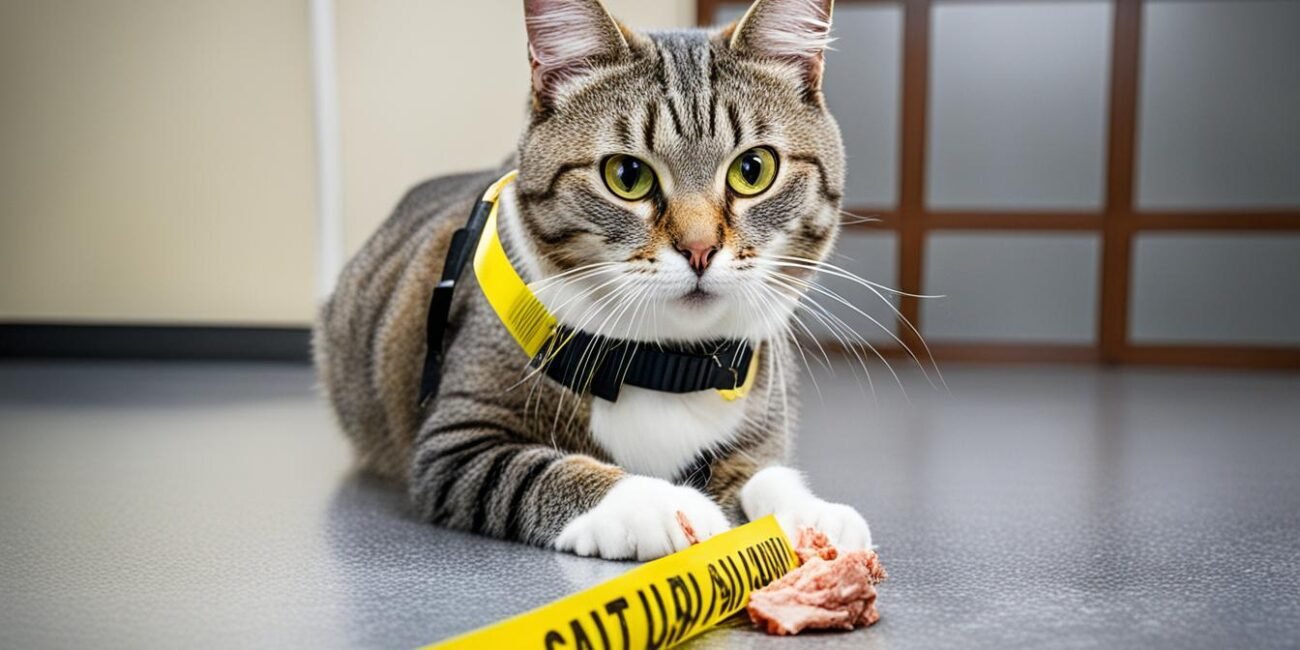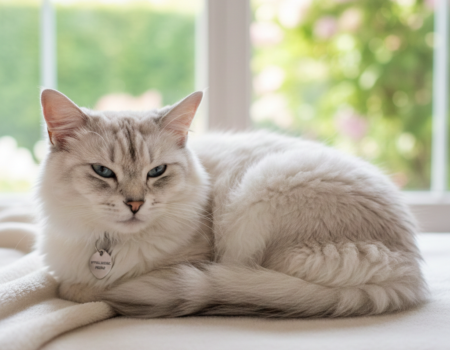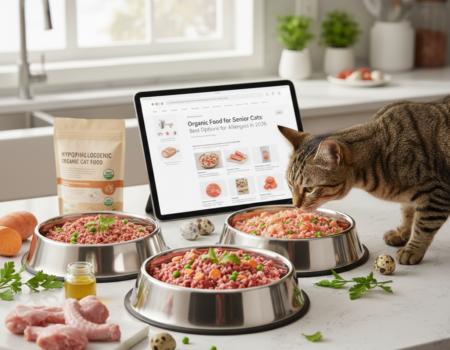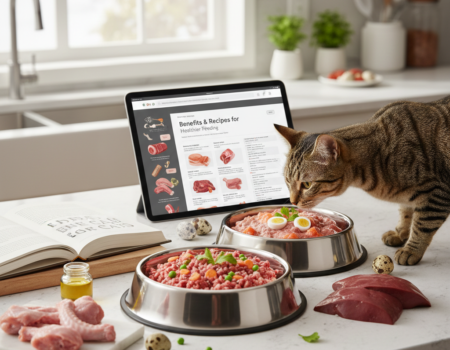“Until one has loved an animal, a part of one’s soul remains unawakened.” – Anatole France
As a cat lover, I understand the desire to provide our furry friends with the best possible diet. However, when it comes to feeding cats, the question of whether they can eat raw chicken often arises. Cats are known to be obligate carnivores, but does that mean raw chicken is safe for them? In this article, we will delve into the debated topic of feeding cats raw chicken, exploring both the potential benefits and risks involved. So, let’s uncover the truth and find out if raw chicken truly has a place in a cat’s diet.
Key Takeaways:
- Feeding cats raw chicken is a controversial topic with both benefits and risks.
- Raw chicken can provide essential nutrients for cats but may also carry the risk of bacterial contamination.
- Proper safety measures, such as purchasing high-quality chicken and practicing good hygiene, can help minimize the risks.
- Consider consulting with a veterinarian to make an informed decision about feeding raw chicken to your cat.
- Remember that every cat is unique, and what works for one may not work for another.
The Debate on Raw Diets for Cats
The debate surrounding raw diets for cats is ongoing. Supporters of raw diets argue that they allow cats to consume food that aligns with their biological needs. They believe that feeding cats raw meat mimics their natural diet in the wild.
However, it’s essential to understand that there are differences between wild and domesticated cats. The question of whether cats should eat raw chicken or any other raw meat requires careful consideration of the safety risks involved.
As a cat owner, I understand the desire to provide our feline companions with a diet that meets their nutritional needs and respects their natural instincts. However, it’s crucial to weigh the potential benefits against the risks to ensure the health and well-being of our cats.
“Feeding cats raw chicken can be a controversial topic, and it’s important to educate ourselves about the potential risks involved. While some argue that a raw chicken diet is closer to a cat’s natural diet, others emphasize the safety concerns related to bacterial contamination.”
Many cat owners who choose to feed their pets a raw diet believe that it promotes optimal health and addresses common issues such as allergies and digestive problems. They argue that raw diets provide cats with essential nutrients, enzymes, and moisture that can improve their overall well-being.
However, it is also crucial to consider the risks associated with feeding cats raw chicken. Raw meat can contain bacteria and parasites, such as Salmonella and E. coli, which can pose health risks to both cats and humans. While cats have a stronger resistance to these pathogens, it’s still essential to take precautions to ensure their safety.
By considering both sides of the debate and understanding the risks involved, we can make an informed decision about whether a raw chicken diet is suitable for our cats. It’s important to consult with a veterinarian who can provide personalized guidance based on our cat’s specific needs and health conditions.
Throughout this article, we will explore the benefits and risks of feeding cats raw chicken, as well as safety measures to consider. We’ll also discuss how raw chicken can support feline health and provide tips on choosing the best quality chicken for our cats’ diets.
Let’s dive deeper into the debate and gather the information we need to make the best decision for our furry friends.
Benefits of Feeding Cats Raw Chicken
Proponents of raw diets for cats strongly advocate for feeding raw chicken due to the numerous benefits it offers. As a rich source of protein, raw chicken plays a vital role in supporting a cat’s overall health and well-being.
“Raw chicken provides cats with essential amino acids that are necessary for various bodily functions.”
The amino acids found in raw chicken are crucial for maintaining healthy muscles, promoting tissue repair, and supporting the immune system. They are the building blocks that assist in the synthesis of enzymes, hormones, and antibodies needed for proper bodily functions.
Furthermore, the taste of raw chicken is highly appealing to cats, aligning with their natural instincts as hunters. It allows them to engage their predatory behavior and satisfy their need for a diverse and nutritious diet.
Feeding cats raw chicken can also be advantageous for cats with specific dietary needs. For example, cats with food allergies or sensitivities may benefit from a raw chicken diet as it eliminates the potential allergens and additives commonly found in commercial cat foods.
The Nutritional Benefits of Raw Chicken for Cats:
- High-quality protein source
- Essential amino acids
- Promotes muscle development and repair
- Supports a healthy immune system
- Satisfies natural hunting instincts
- Can benefit cats with food allergies or sensitivities
By incorporating raw chicken into a cat’s diet, pet owners can provide their feline companions with the nutritional elements necessary for optimum health.
Risks of Feeding Cats Raw Chicken
Feeding cats raw chicken may seem like a natural choice, but it’s important to be aware of the risks associated with this diet. While cats have a shorter digestive tract and higher acidity in their stomachs, which helps reduce the likelihood of pathogens causing illness, raw meat still poses potential dangers to both cats and humans.
The main concern when it comes to raw chicken is the potential presence of parasites and bacteria. Raw meat can harbor harmful organisms such as Salmonella or Campylobacter, which can cause foodborne illnesses in cats. These pathogens can lead to symptoms like vomiting, diarrhea, and dehydration. In severe cases, they can even be life-threatening, especially for young kittens or cats with compromised immune systems.
It’s worth noting that cats in the wild have a higher tolerance for consuming raw meat due to their natural environment and exposure to various pathogens. However, domesticated cats may not have the same level of resistance, making it crucial for pet owners to take precautions to minimize the risk of contamination.
“Feeding cats raw chicken carries potential risks due to the presence of parasites and bacteria that can cause foodborne illnesses.”
By understanding the risks involved in feeding cats raw chicken, pet owners can make informed decisions about their feline companions’ diet. Taking necessary safety measures and consulting with a veterinarian can help ensure the well-being of your cat while still considering the potential benefits of raw diets.
Safety Measures for Feeding Cats Raw Chicken
To ensure the safety of your cat when feeding raw chicken, it is important to follow certain guidelines. By taking proper precautions, you can minimize the risk of bacterial contamination and ensure the well-being of your feline companion.
Here are some raw chicken cat food guidelines:
- Purchase fresh raw meat from reputable sources: It is crucial to obtain raw chicken from trusted sources to reduce the risk of contamination. Look for quality products that prioritize the health and safety of the animals.
- Disinfect surfaces: Thoroughly clean and disinfect all surfaces that come in contact with raw meat. This includes cutting boards, knives, and countertops. Use a bleach solution or a pet-safe disinfectant to eliminate any potential bacteria.
- Practice proper hygiene: Wash your hands with soap and water for at least 20 seconds before and after handling raw chicken. Alternatively, wear disposable gloves to avoid direct contact with the meat.
Following these feeding cats raw chicken precautions can significantly reduce the chances of bacterial contamination and ensure that your cat’s diet remains safe and healthy.
Choosing the Best Raw Chicken for Cats
When it comes to selecting raw chicken for your cat’s diet, it’s essential to prioritize high-quality products that provide optimal nutritional value. By doing so, you can ensure that your feline companion enjoys the benefits of a wholesome and safe diet.
Here are some tips for choosing the best raw chicken for cats:
- Look for fresh, organic chicken: Opt for fresh chicken that is free from antibiotics or hormones. Organic chicken is preferable as it is produced without the use of synthetic chemicals, ensuring a more natural and healthier option for your cat’s diet.
- Consider the source: Choose chicken from reputable and trustworthy sources. This helps reduce the risk of potential contaminants and ensures that the chicken is handled and processed with proper hygiene standards.
- Check for quality: Examine the appearance and smell of the chicken. It should have a fresh and pleasant smell, and the meat should be firm and free from any discoloration or excessive moisture.
- Consult with your veterinarian: Your veterinarian can provide valuable guidance on selecting the best raw chicken for your cat. They can take into account your cat’s specific dietary needs and any health considerations.
By choosing the best raw chicken for your cat’s diet, you can ensure that they receive the necessary nutrients without compromising their health. Remember, always prioritize the well-being of your feline friend when making dietary choices.
Is organic chicken better?
Opting for organic chicken offers several advantages. Organic farming practices prioritize animal welfare, use no synthetic chemicals, and ensure the chicken is raised on a natural diet. This can lead to a higher quality and more nutritious product for your cat’s consumption.
Serving Raw Chicken to Cats
When it comes to serving raw chicken to your cat, proper handling is crucial. Here are some guidelines to ensure a safe and enjoyable meal:
- Cut the chicken into appropriate-sized pieces: It’s important to cut the raw chicken into small, manageable pieces that your cat can chew easily. This helps prevent choking and ensures your cat can safely consume the food.
- Serve it raw: Cats are natural carnivores, and their digestive systems are designed to process raw meat. Therefore, it’s essential to serve the chicken to your cat in its raw form. Cooking the chicken can alter its nutritional value and may make it less appealing to your feline friend.
- Mix it with other cat-friendly ingredients: While raw chicken alone can provide essential nutrients, you can enhance the meal by mixing it with other cat-friendly ingredients. This helps create a more complete and balanced meal for your cat. Consider adding supplements or vegetables like pumpkin or carrots for added nutritional benefits.
- Monitor your cat during feeding: It’s important to keep an eye on your cat while they are eating the raw chicken. This allows you to ensure that they are handling the food properly and prevents any potential issues or misuse of the food.
By following these serving tips, you can provide your cat with a nutritious and satisfying meal of raw chicken. Remember, it’s always a good idea to consult with your veterinarian before making any significant changes to your cat’s diet.
Understanding Cat Digestion
When it comes to cat digestion, it’s important to recognize that cats are obligate carnivores. This means their digestive system is specifically designed to process raw meat efficiently. Unlike omnivores or herbivores, cats lack the necessary enzymes to break down plant matter effectively. Instead, their bodies have evolved to handle a diet primarily composed of animal protein.
One of the key adaptations in a cat’s digestive system is their shorter digestive tract. Compared to other animals, cats have a relatively compact pathway from their mouths to their anus. This shorter tract allows for quicker digestion of raw meat, ensuring that the essential nutrients are absorbed efficiently.
In addition to their shorter digestive tract, cats also have higher stomach acidity. This higher acidity helps in the breakdown of raw meat and acts as a defense mechanism against harmful bacteria. It provides an optimal pH environment for digestion, helping to kill potential pathogens and reducing the likelihood of illness.
These evolutionary adaptations enable cats to tolerate raw chicken and other types of raw meat in their diet. Their bodies are equipped to handle the potential risks associated with consuming raw meat. However, it’s important to note that precautions must still be taken to ensure the safety and minimize the potential risks of bacterial contamination.
How Raw Chicken Supports Feline Health
Feeding your cat raw chicken can provide numerous benefits for their overall health and well-being. Raw chicken is packed with essential amino acids that support various aspects of feline health.
The amino acids found in raw chicken are crucial for proper bile production, which aids in digestion and nutrient absorption. This ensures that your cat can properly break down and utilize the nutrients from their food.
Raw chicken also promotes eye health in cats. It contains essential amino acids that support the development and maintenance of healthy vision. These nutrients contribute to optimal eye function and may reduce the risk of eye-related conditions in cats.
In addition, raw chicken is beneficial for heart health in felines. The amino acids present in the meat help maintain the integrity of the heart muscles and support proper cardiovascular function. Including raw chicken in your cat’s diet can contribute to a healthy heart and a strong cardiovascular system.
Furthermore, raw chicken can play a role in reproductive activity in cats. The amino acids present in the meat support the reproductive system, allowing for proper hormone production and overall reproductive health.
Feeding raw chicken to your cat is not only a source of essential nutrients but also contributes to their hydration. Raw chicken has a higher water content compared to cooked chicken, aiding in keeping your cat hydrated.
It’s important to note that while raw chicken offers these benefits, it should be a part of a balanced and well-rounded diet for your cat. Consult with your veterinarian for personalized guidance on incorporating raw chicken into your cat’s feeding routine.
Now, let’s have a look at a table that summarizes the benefits of raw chicken for cats:
| Benefit | Description |
|---|---|
| Proper Bile Production | Supports digestion and nutrient absorption |
| Eye Health | Aids in the development and maintenance of healthy vision |
| Heart Health | Maintains the integrity of heart muscles and supports cardiovascular function |
| Reproductive Activity | Promotes proper hormone production and reproductive health |
| Hydration | Contributes to hydration due to higher water content |
Conclusion
The decision to feed your cat raw chicken should be based on a careful consideration of the potential benefits and risks involved. While raw chicken can provide valuable nutrients that support your cat’s health, it’s important to be aware of the potential risk of bacterial contamination. By implementing proper safety measures, such as purchasing high-quality chicken from reputable sources and following strict hygiene protocols, you can minimize the chances of pathogen transmission.
Additionally, it’s crucial to take into account your individual cat’s specific dietary needs and consult with a veterinarian before introducing raw chicken into their diet. They can provide personalized advice and guidance based on your cat’s age, health condition, and overall nutritional requirements.
Feeding raw chicken to cats requires a responsible and informed approach. While it can offer benefits such as a rich source of protein and satisfying their natural instincts, it’s essential to prioritize their safety and well-being. By making well-informed decisions and taking the necessary precautions, you can provide your feline companion with a balanced diet that meets their nutritional needs.
FAQ
Can cats eat raw chicken?
Yes, cats can eat raw chicken. However, it’s important to take certain safety precautions and consider the potential risks involved.
What are the benefits of feeding cats raw chicken?
Feeding cats raw chicken provides them with a rich source of protein, essential amino acids, and nutrients that support various aspects of their health.
Are there any risks associated with feeding cats raw chicken?
Yes, there are risks of bacterial contamination and potential exposure to parasites when feeding cats raw chicken. Taking safety measures can help mitigate these risks.
What safety measures should I take when feeding my cat raw chicken?
It’s important to purchase fresh raw chicken from reputable sources, disinfect surfaces that come in contact with raw meat, and practice proper hygiene by washing hands or wearing gloves when handling the chicken.
How do I choose the best raw chicken for my cat?
Opt for high-quality raw chicken that is fresh, organic, and free from antibiotics or hormones to ensure the highest nutritional value and reduce the risk of potential contaminants.
How should I serve raw chicken to my cat?
Cut the raw chicken into appropriate-sized pieces, serve it raw without cooking, and consider mixing it with other cat-friendly ingredients to create a complete and balanced meal. Always monitor your cat during feeding to ensure they handle the food properly.
How does cat digestion work with raw meat?
Cats have a shorter digestive tract and higher stomach acidity, which allows them to efficiently process and digest raw meat. These adaptations are an integral part of their evolution as obligate carnivores.
How does raw chicken support feline health?
Raw chicken provides essential amino acids that support various aspects of feline health, including proper bile production, eye health, heart health, and reproductive activity. It can also contribute to hydration due to its higher water content.
Can I solely feed my cat raw chicken?
While raw chicken can form a part of a balanced diet for cats, it is important to provide a variety of proteins and other nutrients to ensure they receive a well-rounded and complete nutritional intake. Consult with your veterinarian for personalized advice.










No Comment! Be the first one.